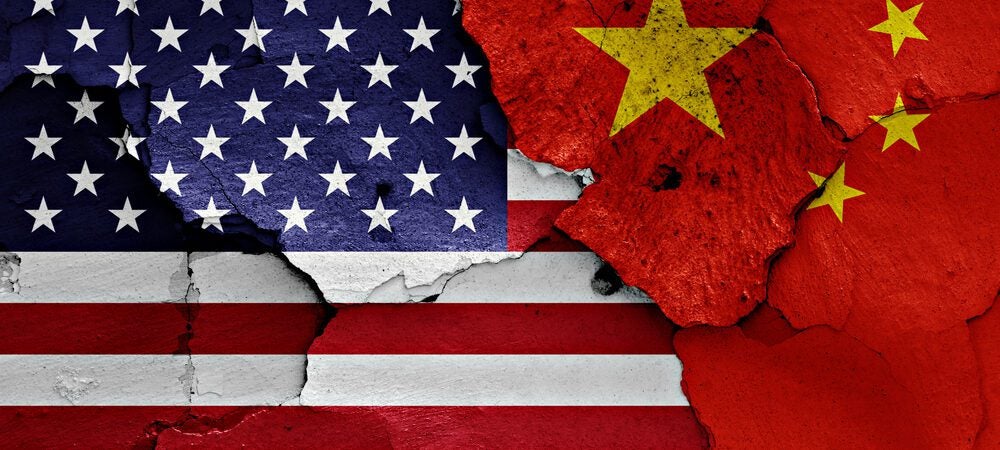The United States (US)-China trade war has escalated from the US banning Chinese apps to targeting domestic companies having close ties with the Chinese government. Recent anti-China legislation under the Biden administration indicates increasing economic hostility to counter Chinese trade practices on the grounds of a threat to US national security.
The anti-China trade policy aims to protect American jobs and businesses from China’s unfair trade practices in technology transfer, intellectual property, and innovation. The Biden administration is concerned about the unfair trade practices which put American companies in a challenging position to compete against China’s 70-90% control of global production of inputs, which are necessary for American technologies, infrastructure, energy, and health care. It risks America’s supply chains, workers, businesses and economic security. Biden’s ‘Investing in America’ has generated investments above $860 billion in electric vehicles (EVs), clean energy, and semiconductors. He also directed the increase in tariffs on imports of $18 billion, targeting Chinese products like EVs or lithium battery items, solar equipment and semiconductors. The tariff on EVs will jump from 25 to 100%.
The effectiveness of the sanctions on China is questionable. The overall disappointment of the Trump trade deal, signed on 15 January 2020, was the dispute resolution mechanism’s failure to ensure the agreement’s effective implementation. According to the Peterson Institute for International Economics, the deal also included China’s commitment to buy substantial additional US goods worth $200 billion, of which China bought only 59%. The US wanted its financial service providers to have enhanced access to compete on a more level playing field and expand their services export offerings in the Chinese market. The US administration failed to bring China to terms with provisions of the trade deal, including fair trade practices, transparency in administrative proceedings, and technology transfer and licensing on market terms. On the contrary, several experts argued that the trade deal would benefit China in the long-run at the cost of American interests.
The Biosecure Act, brought in January 2024, forbids US federal agencies from partnering with China’s Beijing Genomics Institute (BGI), Wuxi AppTec and several biotech companies that collect foreign persons’ genetic data. It calls out the Chinese military-civil fusion strategy to modernise the People’s Liberation Army (PLA). The fusion requires an organisation to cooperate with the CCP intelligence work mandatorily. The Act prohibits companies with certain biotechnology providers of concern in this regard. The Time to Choose Act was introduced in February, which prohibited the Department of Defense and other federal agencies from contracting with domestic companies like McKinsey & Company, which deals with the Chinese government. On April 24, on grounds of stealing consumer data and breach of privacy, a law was signed forcing ByteDance to sell off its TikTok operations in the US within nine months or face a ban. It will affect the 170 million users in the country. In response, China banned WhatsApp and Threads from the Apple store after Facebook and Instagram. However, these apps are not popular in China, so they will not significantly impact Meta.
China argues that these attempts are aimed at hurting its emerging sectors in technology, upsetting its economy, and countering its ideology. China labels the recent American measures to impose additional tariffs as a ‘domestic stunt’ to act tough just before the American elections. The US economy has many links with China. Efforts to decouple US-China economic relations can distort international trade practices.
The trade war also has an impact on global trade. A Centre for Economic Policy Research (CEPR) column estimated its effect with a rise in import tariffs in 2018-2019 worth about $450 billion-$350 billion by the US and $100 billion by China. However, third countries’ trade found increased opportunities rather than just causing shifts in trade patterns. Vietnam, Thailand, Korea, and Mexico benefited in global markets from products where US-Chinese trade declined from this conflict. Meanwhile, exports fell from Ukraine, Egypt, Israel, and Colombia. The foreign policy behaviour of major powers can be considered an indicator of the dynamism in the global power structure.
The trade war between the world’s two largest economies further adversely affects multilateralism and the international governance system. It defers several unresolved issues of the Global South, including a further reformation of the Bretton Woods system where the western countries have a deciding say. Further, it thwarts the global efforts to achieve UN SDGs by 2030, for instance, in the energy sector, which needs international cooperation.
Chinese foreign policy is driven by one constant factor that seeks its rise in the changing global power equation. To this effect, its foreign policy towards the US and India has shown consistency.
The Beijing administration will not likely change its course due to the US pressure tactics to get concessions from China in trade practices. According to Xinhua, US unilateral trade protectionist measures would not affect China and its development efforts. Elections and domestic politics in the US and India often use foreign policy as a base to garner public support for the respective regimes. Both countries are disproportionately affected by China’s advances in the global economic landscape. India has a $85 billion trade deficit in 2023-24 in favour of China, while the US has a $279 billion trade deficit in 2023.
The Government of India banned 59 Chinese apps in June 2020 citing concerns of threats to sovereignty and national security. The US has also shown its strength in foreign policy behaviour by banning Chinese companies from entering the country or calling out political leaders for not conforming to international laws. However, tit-for-tat responses further weaken faith in multilateralism and the practice of rules-based international order.
Mehdi Hussain is a former assistant professor of political science at Kirori Mal College, University of Delhi.
To read the full article as it was published by Hindustan Times, click here.

